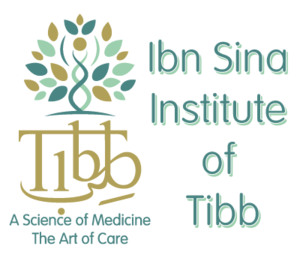The principles in Tibb are an assimilation of the philosophies of Hippocrates, Galen and Ibn Sina. These concepts not only allow for a comprehensive understanding of health promotion, but also provide valuable insights into the causes, pathological processes, management and treatment of illness conditions.
Physis can be likened to having our own personal doctor living inside us, an inherent wisdom of self-healing. This page explains the Tibb principle of Physis giving insight into why Hippocrates described this innate capability as ‘vis Medicatrix Natura’ or ‘the ability of the body to heal itself’.
Principles in Tibb
Tibb Principle Physis
In the discussion on the Tibb principles of “Creation”, the perfection of creation with respect to temperament, structure and function was highlighted. Not only has God created everything in perfection, but He has bestowed every living organism including human beings with an inherent wisdom of self-healing. Hippocrates described it as “vis medicatrix Natura” or ‘the ability of the body to heal itself’. Tibb calls it Physis.
Physis operates at every level of human existence, from the moment of fertilization in the mother’s womb, continuing after birth, and persisting until death. Physis operates during every second of existence to not only maintain health and homeostasis, starting at a cellular to tissues and between the many internal organs within the entire body, and especially during illness conditions to restore health. Physis is the sum total of the body’s natural, instinctive reactions and responses given to the human being to stay well and healthy – it is part of our genetic make-up to ensure continuity of life. Physis can be likened to having our own personal doctor living inside us.
As our internal doctor, physis is responsible for maintaining homeostasis between the physical, mental, emotional and spiritual aspects of each person.
a) At a Physical level: Physis controls the millions of biochemical reactions taking place at any instant – for protection, for growth, tissue maintenance, reproduction and repair,
b) Physiological functions: Physis ensures that all metabolic functions, between the different organs and systems of the body are efficient and waste/toxins are removed,
c) Psychological functions: Ensuring harmony and balance of emotions, and the maintenance of good mental health is regulated by Physis,
d) Nervous system: Physis ensures that effective communication to and from the brain – controls all mental, emotional and physical activities – mind, body, interaction,
e) Defence mechanism: Ensuring that infections arising from outside do not disturb the body’s internal harmony from an efficient immune system. It is important to note that the immune system is only one of the many systems/functions controlled by physis.
To give an example of how Physis works – we look at what happens after someone has eaten something that disagrees with them. They might react by vomiting or by getting diarrhoea. This is a physis response to restore homeostasis through elimination. Neither of these reactions should be suppressed but should rather be managed as they serve the purpose of purging the body of certain toxins. In Western medicine, symptoms of discomfort are dealt with by reaching for a quick-fix solution – perhaps a pill to stop the symptoms. By doing this we may interrupt and obstruct the work of physis. Obviously in severe diarrhoea/vomiting, dehydration needs to be managed. Illness therefore should be looked at in the context of physis.
Listed below are three quotes highlighting the role of physis in maintaining and restoring health:
Each person carries his own doctor inside him. We are at our best when we give the doctor who resides within each patient, a chance to go to work…Albert Schweitzer
“When physis is powerful enough to withstand the disease, it does not require the aid of the physician, as in the case of minor diseases that are self-healing”…Al-Maliki
“…In fact, no herb, no food or any other substance or procedure can do anything on its own to heal. It can only assist the body in its own self-healing. If your finger is cut, it is not the stitches, the bandage or the iodine that causes it to heal; it is the skin itself that performs this miracle.”…Chisti, 1985
In fact, the word “physician” is derived from the word Physis where the role of the physician is working with Physis in the healing process – and not against physis. Note that whilst treatment comes from outside, healing from within.
In conclusion, being aware of physis, empowers individuals to take responsibility for their health and wellbeing with an improved Quality of Life. Similarly, in the treatment of illness conditions the importance of physis in the healing process must be taken into consideration – working with physis and not against physis.
Unfortunately, in keeping with the circle of life, and as death is inevitable, and, just as our metabolism slows down with age, the efficiency of physis to restore homeostasis becomes weaker from the age of 40 onwards. The role of Physis in health promotion and illness prevention is elaborated on in the Consumer Empowerment link.

